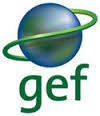Community / Land projects / GEF GOLD+ Bolivia: Enhancing the formalization and mercury reduction in artisanal and small-scale gold mining
GEF GOLD+ Bolivia: Enhancing the formalization and mercury reduction in artisanal and small-scale gold mining

€6157407.407
06/22 - 06/22
Завершено
This project is part of
Implementing Organisations
Donors
Data Providers
Objectives
To reduce the use of mercury and increase incomes in the ASGM sector in Bolivia through a holistic, multisectoral integrated formalization approach, and increasing access to finance leading to the adoption of sustainable mercury-free technologies and access to traceable gold supply chains
Other
Note: Disbursement data provided is cumulative and covers disbursement made by the project Agency.
Target Groups
495. Mercury reduction is the project's main objective and key benefit for both the environment and human health. Considering that Bolivia is currently one of the main mercury-importing hubs where the use of this chemical is high and widespread, the contribution of the project in terms of global environmental benefits will be significant as well as the contribution to the country’s obligations under the Minamata Convention on Mercury. 496. In addition, the project will contribute to economic, social, and environmental benefits supporting sustainable development in the country. 497. Gold mining is an essential source of economic income and job opportunities, especially considering that most of the cooperative members and personnel linked to the ASGM activities come from rural areas. However, due to the lack of control on trade and exports, inefficient gold recovery technologies and reduced formalization of the operations, considerable revenues are not being ripped and benefitting the state, producers, and society in general. By strengthening national and local authorities' technical and institutional capacities, policies, regulations, and measures for greater control and monitoring of gold producing and trading activities could be implemented. This will reduce gold smuggling, tax evasion and illicit trade resulting in increased revenues at the central, regional, and municipal levels. 498. The project will promote a scenario in which the ASGM sector can increase its economic incident and impact at the local and national level for the thousands of families that depend primarily, secondarily, or temporarily on this activity. Additional economic gains will be achieved through more efficient technologies and consequent higher gold recovery and responsible supply chains that will ensure access to formal markets and better prices. The economic gains can then translate to social well-being and livelihood security. 499. Specific to women miners, the project will improve their access to finance, savings, and entrepreneurship, which will lead to economic empowerment that contributes to their well-being and their families. Gender mainstreaming activities will reduce gender inequalities among project beneficiaries. 500. The transition towards more efficient and/or cleaner recovery technologies and the introduction of better practices will improve the working and living conditions of the miners including women and vulnerable population, leading to a better health for all. Better mining practices will also improve the quality of water, and therefore host communities will have access to cleaner water. 501. The miners and communities will increase their skills and knowledge, leading to improved education in mining areas. Furthermore, promoting formalization processes will also allow miners to access social and financial services. Proper development of the ASGM sector can reduce conflicts over land use or linked to environmental pollution.502. Finally, and in line with the innovative approach followed by the GOLD+ programme, apart from mercury reduction, the project will allow for better land management and proper handling and disposal of mine tailings, which will benefit biodiversity and will make communities more resilient to climate change.




